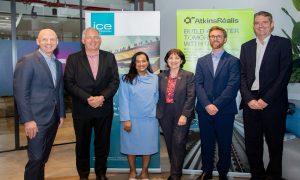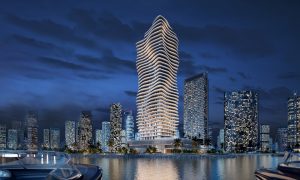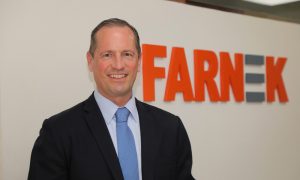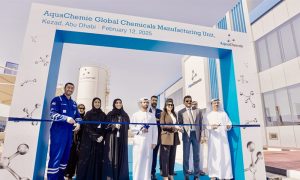Into Iraq
With a population in excess of 30 million people, the fifth largest oil reserves in the world and little development in decades, experts tell The Big Project that Iraq could be the break the industry is waiting for
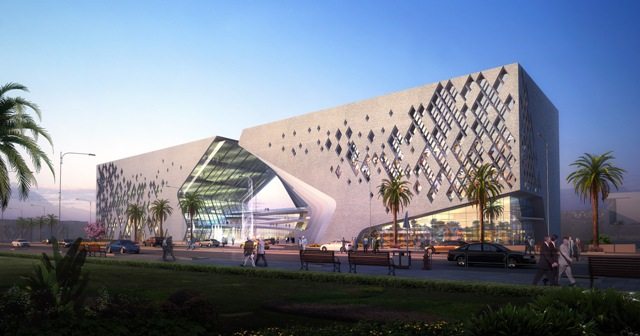
On May 23 Iraq’s construction and housing minister, Mohammad Al Darrajsaid, addressed a packed hall of industry professionals in Abu Dhabi, urging them to invest in and build up the war torn country.
Al Darrajsaid opened by telling the room that Iraq will need 2.5 million houses and 7000km of new roads by 2015. But it’s no easy job when the country’s entire budget for 2012 stands at $112bn and the outside world still perceives the country to be a risk in terms of investment and security. With a plan to increase oil production by 100% over the same period, current projections see $2bn allocated to social housing over the next two years; $2bn on low cost housing; and a further $5.8bn on roads.
The largest projects currently underway include the new 1830 hectare city within Besmaya, 10km south east of the capital, Baghdad. A $7.75bn contract for the project was signed between the Iraqi government and South Korean conglomerate Hanwha Group on May 27 for a seven year construction period that will cover roads, water supply and sewer systems as well as 100,000 Islamic traditional and modern houses of 100, 120 and 140m2, for which 30,000 people have already registered.
The Besmaya project will also provide more than 100,000 jobs to support the growing economy, according to Baghdad governor Salah Abdul Razzaq.
It is complemented by other mega projects such as New Sadr City, the Broadway Malyan concept masterplan for a sustainable community of 500,000 inhabitants, designed to ease the overcrowding in Sadr City as part of the 10×10 Iraq development scheme, which itself was originally projected to cost $10bn over a 10 year delivery timeframe.
“In theory Iraq has work for the next 50 years,” asserts Amaar Al Assam, executive director for Dewan Architects; the family run regional firm that was established in Iraq almost 40 years ago.
“It’s a massive market. There are barriers to entry right now, but in five years time the situation will get better and it will be the prime market in the region along with the UAE, Qatar and Saudi Arabia,” he continues.
Dewan currently has 20 active projects in the country covering architecture and urban and social planning, all executed from its five offices. “On paper it’s probably the most difficult market to operate in and it does have its challenges, but it’s also the most lucrative and if you know how to go about doing business there, it’s not as difficult as people think,” he adds.
Opportunity
Once active in the country, opportunity seems to knock at every corner; for example the country has 104 airports, of which 29 have unpaved runways. There is an Emergency School Construction and Rehabilitation Project (ESCRP), approved in 2004, to build new schools, replace those which are unsafe and “rehabilitate” schools in need of repair through community labour. The project will cover 36 school building projects but is dependent on international funding.
“The country needs everything and anything, mainly power to boost its manufacturing industry,” says Al Fayha Group CEO Sarmad Al Khudairi, whose company is the largest employer in the country with 1200 staff on its books. “There are severe shortages in qualified resources in Iraq and with the rules currently in place you cannot deploy foreign workforce easily so you must rely on the local market,” he adds.
Currently planning a 250,000sqm residential project in the country which describes as being “only the start” Al Khudairi says he is looking to other GCC markets for the talent Al Fayha’s projects require.
Having himself recently returned to share expertise gained from 16 years in other markets, he explains the decision by saying: “There has never been a private sector lead in these types of projects, so by employing Iraqi architects from outside the country we get the cultural understanding and expertise.”
Al Assam adds: “Local architecture firms in Iraq don’t necessarily have that experience because they have been cut off from the world for 30 years.”
Some of the companies that have managed to tap lucrative opportunities in Iraq include Metito, Habtoor Leighton Group, Drake and Scull and Hill International. Between them the companies are covering oil and gas, water projects and project management consultancy and advisory.
For new companies looking to enter Iraq, the World Bank and International Finance Corporation advises that it takes an average 187 days to obtain a construction permit, going through a total of 13 procedures covering everything from the payment of paving and inspection fees to the local municipality, to the acquisition of local clearances and guidelines and obtaining a telephone connection.
“Every market has different ways of working but for us Iraq represents about 25 percent of our business. By the end of the year we expect that to have risen to around 35 percent and in two or three years time it could be 70 percent of our business,” says Al Assam.
Trade growth
Iraq’s religious and historic wonders attract up to five million visitors annually, with tourism from Europe increasing 98% between January and September 2009. Yet the most popular destinations, Karbala and Najaf have no hotels rated three stars or above under international standards.
“Religious tourism in Iraq is on a growth trajectory,” says chairman of the Iraqi National Businessmen Council, Ibrahim Al Baghdadi.
“There are absolutely no hotels in Karbala and Najaf which would be graded three star or above by international standards. Coupled with the growing number of pilgrims, a number of large scale developments are required to ensure this ‘gap’ is addressed. We require at least 500 hotels based on the current influx of pilgrims to be built in Karbala,” he adds.
Some of the projects to have been announced recently include the $175m, 12 storey Rawdatain Residences, in Karbala; a hotel and separate hotel apartments complex by the J.W. Marriot chain in Erbil, with investment on the latter exceeding $100m; and a Rotana hotel in the same province, for an undisclosed amount.
“There has been a sizeable increase in foreign investment in Karbala and Najaf in particular over the last year. In 2010, foreign firms and investors reported $42.668b in investments, service contracts and other commercial activities across Iraq — an estimated 48.7 percent increase in total deal value over the previous year,” says Dunia Frontier Consultants’ emerging markets managing director, Kyle Stelma.
Currently the UAE is Iraq’s primary trading partner with trade in 2012 predicted to reach values of $7bn. In 2011, this figure stood at $6.5bn; $4.5bn of which came from oil and gas. Other trade primarily covers building materials and human resources, the latter of which was buoyed by an announcement earlier this year that low cost carrier FlyDubai is running new services to Baghdad.
As one of the firms that was forced to wind down operations in Iraq during the war, Dewan is now highly active in the market and is winning work on hospitals, schools, hotels, master planning and infrastructure. Al Assam says that although staff are permanently based in one of the five active offices in the country, many do commute from the UAE.
“The government is developing the country and there is a huge line of foreign investors waiting for security to improve before they jump at the Iraqi market,” observes Al Assam.
“It’s a big market and it’s a country that hasn’t been developed for 50 years or so. Iraq needs everything and with the global market being in trouble it represents a market that is almost a life saver for some of the construction companies who are struggling elsewhere,” he adds.
Echoing his point, Al Khudairi adds: “This is only the start; we need to build everything.”














